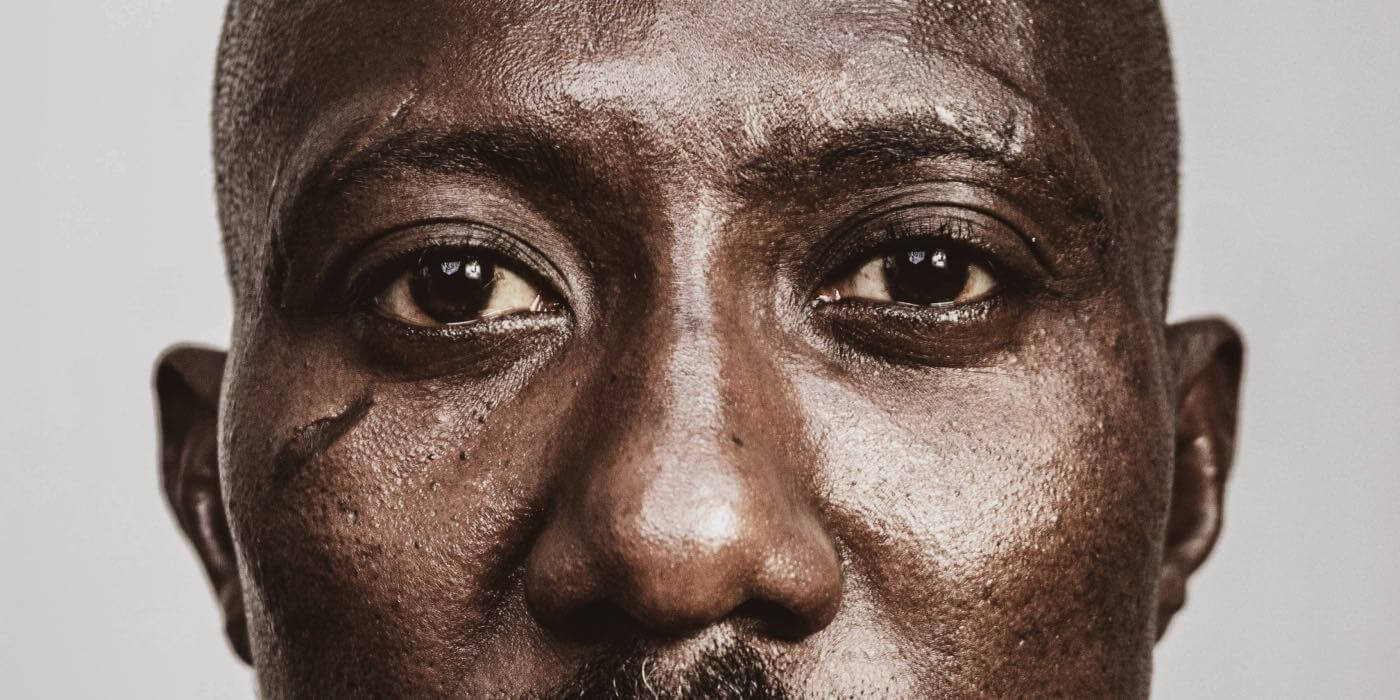Dealing with painful emotions is hard. Obviously.
As a result, a lot of people fall into the habit of avoiding those emotions rather than confronting them directly:
- Using alcohol or social media to distract themselves
- Depending on reassurance from others
- Projecting or blaming other people
- Even flat out denial
But while these avoidance strategies can feel like a relief initially, they almost always lead to feeling worse in the long run.
The solution is to build emotional courage.
Emotional courage is what allows you to do the right thing in the face of painful feelings instead of resorting to what’s comfortable.
If you want to feel better emotionally it’s about building a better relationship with your emotions. And one of the best ways to do that is to build emotional courage.
Here are 7 habits of emotionally courageous people that we can all learn from.
1. Using “I feel” statements
Sometimes simply acknowledging how you feel with words is painful. It’s hard enough to feel anxious, for example, but harder still to say “I’m anxious” in response to your coworker’s question about if you feel okay.
To avoid this emotional discomfort, many people get in the habit of intellectualizing their emotions—describing how they feel in overly intellectual, conceptual, or metaphorical language. You might, for example, say things like “I’m stressed” rather than “I’m afraid” or “I’m bugged” rather than “I’m mad.”
Here’s the problem: When you get in the habit of using intellectualizations to avoid your actual feelings, you’re teaching your brain that those feelings are dangerous, which will only make you less emotionally resilient in the long term.
Instead, practice using I feel statements when you talk about your emotions…
- I feel sad.
- I feel afraid.
- I feel angry.
Because when you talk about your emotions in plain language—even if it’s a little uncomfortable—you’re teaching your brain that just because you feel bad doesn’t mean something’s wrong. And that is the heart of emotional courage.
The confidence to handle difficult emotions begins with the courage to describe them honestly.
When in doubt, ask yourself this question:
How would a five-year-old describe this feeling?
Little kids aren’t sophisticated enough to intellectualize their feelings. And in that respect, it makes them great models for emotional courage and expressing our feelings honestly and plainly.
2. Tolerating other people’s painful emotions
One of the biggest signs that someone lacks emotional courage is that they are unwilling to tolerate other people’s painful feelings.
For example, your spouse is angry and upset after work about some incident with a coworker. But as soon as they start describing what happened and why they’re feeling upset, you say something like You’re always complaining about this manager at work… Why don’t you stop whining and just request a transfer?
Now, you might rationalize this as trying to offer a solution and be helpful. But more often than not, behavior like this is actually about reducing your emotional discomfort at having your partner be emotional.
It’s perfectly natural, especially with people we love, to not want them to feel bad. But sometimes it’s important to be able to simply empathize, listen well, and be supportive of them feeling bad. But you can’t do that if you’re so intolerant of feeling bad yourself that you resort to quick fixes like advice-giving or simply avoiding them when they feel bad.
Emotions are not problems to be fixed. They’re experiences to be validated.
This doesn’t mean you should tolerate bad behavior, by the way. But painful emotions aren’t dangerous. And usually, the best way to be truly helpful to someone who’s having a hard time is to validate their emotions, which means being willing to tolerate your own discomfort.
3. Embracing uncertainty
It’s human nature to want to feel secure and certain about things. And while trying to reduce uncertainty in your life is generally a good thing if it’s possible, it’s surprisingly easy (and emotionally unwise) to assume that you can always be more certain.
For example, many people use chronic worry as a defense mechanism against feeling uncertain. When confronted with a scary possibility in the future, even if you have absolutely no way of actually changing whether it happens or not, the act of worrying about it feels like you’re doing something productive. So you get addicted to using worry to relieve your fear of uncertainty.
Of course, in reality, worry only makes you anxious in the long run (and doesn’t actually address your uncertainty). Like so many of our defense mechanisms, worry gives us the illusion of control and certainty but in the long run only makes us more miserable.
The more you avoid uncertainty, the more afraid of it you will become.
Emotionally courageous people understand that uncertainty is often inevitable. And while it feels unpleasant to be uncertain, living in denial about uncertainty only makes things worse in the long run.
4. Practicing self-compassion
It’s a strange irony that some people find it easier to be hard on themselves than kind.
For example:
- After making a mistake at work, it feels easier to launch into a tirade of negative self-talk and self-judgment with yourself than to step back, see the big picture, and be supportive of yourself.
- After randomly remembering a failed relationship from decades ago, it’s easier to wallow in self-criticism and spirals of rumination rather than acknowledge that relationships are hard and that we all make mistakes.
- After breaking your commitment to go to the gym and watching more Netflix instead, it’s somehow easier and more natural to beat yourself up about how lazy and undisciplined you are rather than, for example, trying to understand why you didn’t make it to the gym.
One of the most courageous things we can do is to admit when a long-standing habit or mindset isn’t working any more and try something else out instead.
Of course, this can feel scary. Even if self-criticism causes you a lot of pain, if it’s the only thing you’ve ever know then that familiarity is going to be scary to give up.
But at the end of the day, chronic self-criticism simply doesn’t work very well. So maybe it’s time for a change…
Have the courage to be compassionate with yourself rather than critical.
Especially for a lot of high-achievers and type-A personalities, the idea of self-compassion can actually be intimidating because it seems so foreign and maybe a little woo-woo or out there.
But in reality, nothing is more down-to-earth and practically effective as self-compassion, because it simply means being willing to treat yourself after a struggle like you would treat others—with a little kindness and support.
5. Acknowledging helplessness
Though we don’t like to admit it, we are all helpless sometimes:
- I’m helpless to write an article that will resonate with every single reader and not offend anyone. Because try as I might, not everything is under my control.
- You are helpless to ensure that you get that new position at work you’re applying for now that the interview is over. Because try as you might, not everything is under your control.
There are a lot of things in life we can control and exert an influence over. And taking responsibility for those things and doing them to the best of our ability is a wonderful thing. But like anything, the exertion of control can be taken too far…
When you try to control things you can’t, you have less energy left to control the things you can.
For example, if I spend hours worrying about whether people will like the topic of a new article or not, I’m going to be too spent and drained to actually write the damn article in the first place!
You can’t do good work without the courage to acknowledge your helplessness and let go of the need for control.
And of course this takes courage. More specifically, it takes emotional courage to tolerate the feelings of helplessness and lack of control in some areas so that you can stay focused on the places you can exert control.
6. Enforcing your boundaries
Most people know that setting healthy boundaries is important…
- If you “just take it” every time your partner is rude to you, you’re only reinforcing that behavior.
- If you give in each time your toddler throws a tantrum, you’re only encouraging more tantrums.
- If you concede on every point in the negotiation, you’re going to get a far less optimal outcome.
But setting boundaries is hard…
- It’s terrifying to even imagine confronting your partner about their rudeness toward you.
- It’s hard to say no to that adorable little toddler face even though you know they don’t need a third cookie.
- It feels uncomfortable and awkward to ask for what you want directly.
And if you think setting boundaries is hard, enforcing them is even harder:
- It’s really difficult to follow through on your boundary of moving out of the house if bad behavior continues.
- It’s embarrassing to let your toddler throw a tantrum in front of other parents without giving in.
- It’s really awkward to not back down from your initial request and stand your ground despite worrying that the person across from you won’t like you anymore.
Human beings are incredibly social creatures. Which means that tolerating difficult emotions is especially hard to do in the context of relationships and other people. Like it or not, we do care a lot about what other people think of us.
But precisely because we are such social creatures—because our health as individuals is utterly tied up with the health of our relationships—having the courage to set (and enforce) healthy boundaries is essential.
There are no healthy relationships without healthy boundaries.
A huge percentage of your health and happiness as an individual comes down to the health of your most important relationships. And that means finding the courage to enforce healthy boundaries is one of the highest forms of self-care.
7. Choosing values over feelings
Often the greatest form of emotional courage is the willingness to subordinate your feelings to your values.
Of course, a big part of emotional courage is the willingness to confront difficult feelings instead of avoiding them. But confronting your difficult feelings doesn’t mean blindly taking orders from them or getting lost in them.
Quite the opposite, actually:
It takes tremendous courage to be willing to have a difficult feeling and stay focused on your values.
For example:
- It takes courage to stay focused and present to what your partner is really saying in the conversation when your emotions of irritation and annoyance are distracting you.
- It takes courage to persevere and keep giving that presentation when your anxiety and embarrassment over that gaffe on the last slide is distracting you.
- It takes courage to continue working hard to get that project done on time when procrastination and the allure of cheap excitement are distracting you.
None of this is to say that you shouldn’t be aware of your emotions. Or that sometimes you shouldn’t “go with” your emotions when it makes sense. But just because your emotions are sometimes helpful is no reason to assume that they always are.
Your emotions will lead you astray just as often as they will guide you.
Just like a good friend may have wonderful advice in certain situations and terrible advice in others, your emotions may be worth acting on in some situations but not in others—especially when they conflict with your values, the things you aspire most toward.
All You Need to Know
If you want to consistently feel better emotionally, practice confronting your painful emotions instead of avoiding them. These 7 habits will get you started building emotional courage:
- Using I feel statements
- Tolerating other people’s painful emotions
- Embracing uncertainty
- Practicing self-compassion
- Acknowledging helplessness
- Enforcing your boundaries
- Choosing values over feelings





14 Comments
Add YoursOutstanding!!!! I never knew that having boundaries was a form of self-care. It makes sense! Thanks Nick!
Thanks, Wendy 🙂
Nick, amazing and concise content. I’m always impressed with the clarity and actionable steps you give us. Thank you so much.
You’re very welcome, Mark!
Nick, so grateful and impressed at how quickly you address and issue and hit the nail on the head.
Thanks, JM! I do try to be concise 🙂
Really appreciated this nugget: ‘There are no healthy relationships without healthy boundaries.’
Thanks Frankie!
All those examples you give, clarifies so much for me. I have noticed that my emotional state can fluctuate even though I may be having a good day. I have learned to self-talk. I ask the questions and I answer them.
On my morning walks, when I see no one around, I do that out loud:). That conversation helps me.
Glad they’ve been helpful, Yasmin!
Nick it’s Riccardo from Italy, your articles are just amazing. Thanks for your work, it really helps!
You’re very welcome, Riccardo!
Excelente articulo
O conteúdo que você oferece é claro, objetivo e inspirador, obrigado!